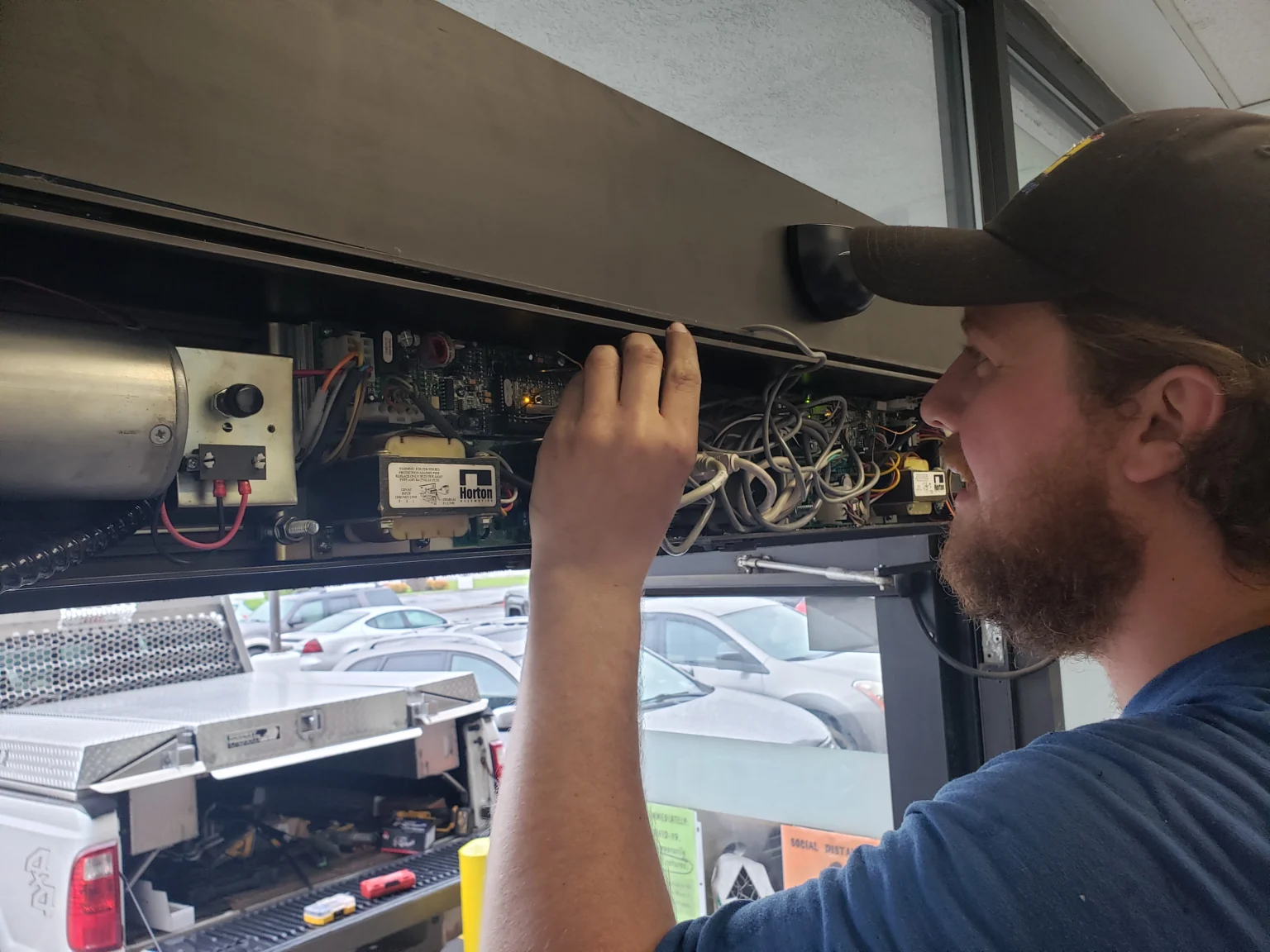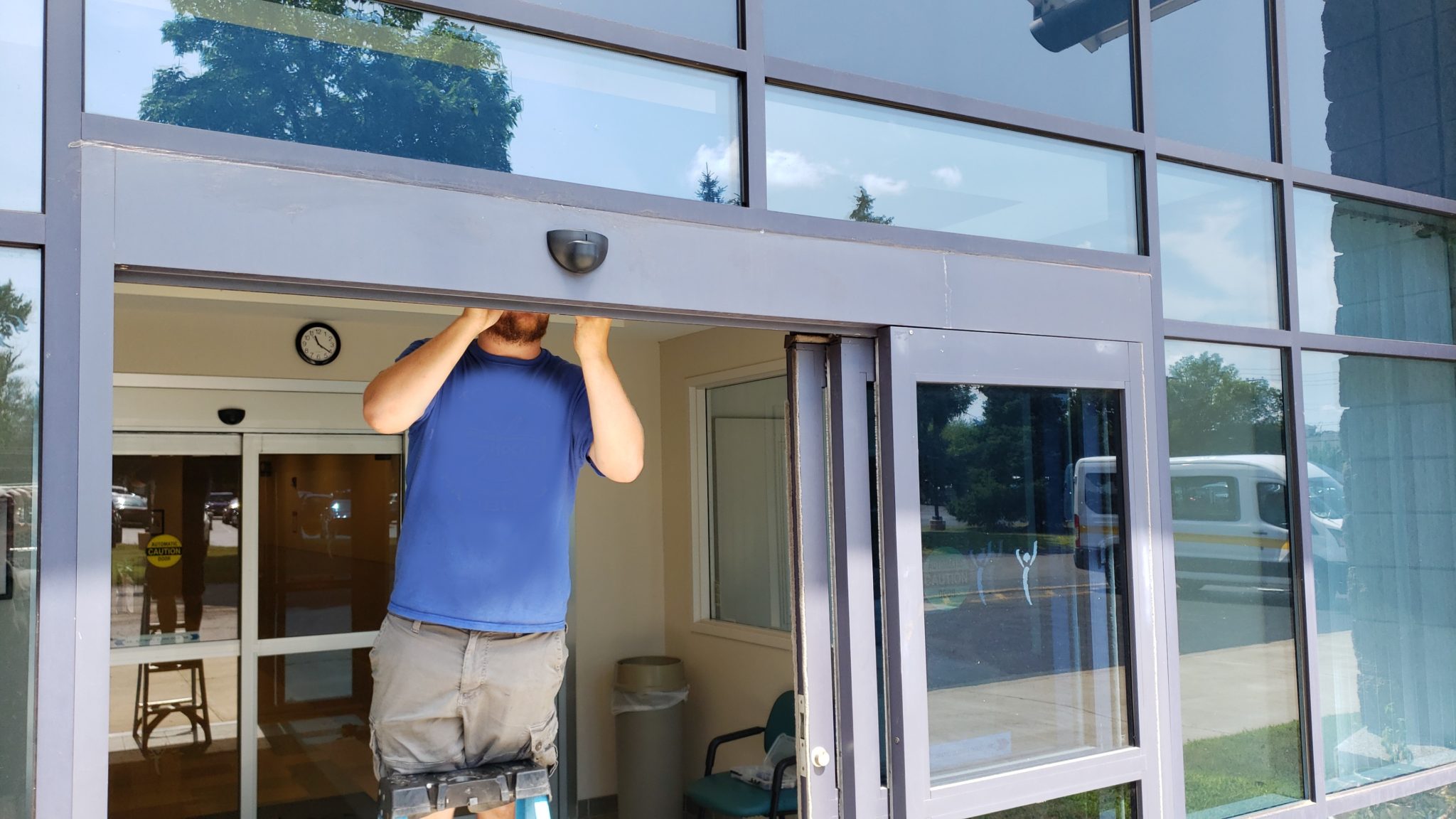The Hidden Downsides: Exploring the Cons of Automatic Sliding Doors Before You Invest
Introduction
Automatic sliding doors are a common sight in many places, from shopping malls to office buildings. They offer convenience and accessibility, making it easy for people to enter and exit without needing to push or pull on heavy doors. However, before you invest in automatic sliding doors, especially if you're considering options in Cincinnati, it's essential to understand that they're not without their drawbacks. This article will delve deep into the hidden downsides of automatic sliding doors, providing you with valuable insights to help you make an informed decision.
Understanding Automatic Sliding Doors
What Are Automatic Sliding Doors?
Automatic sliding doors are door systems that open and close automatically when they detect motion. They are often equipped with sensors that trigger the door’s movement as a person approaches. Commonly found in commercial spaces, these doors enhance accessibility but come with a range of considerations.
How Do Automatic Sliding Doors Work?
These doors operate through a system of sensors and motors. When someone approaches, sensors detect their presence and send a signal to the motor, which activates the door mechanism. The result is a smooth entrance or exit without physical effort.
The Hidden Downsides: Exploring the Cons of Automatic Sliding Doors Before You Invest
Initial Costs
High Installation Expenses
One significant downside is the initial cost associated with purchasing and installing automatic sliding doors. While they may save time and labor costs over time, the upfront investment can be quite high compared to traditional doors.
Ongoing Maintenance Costs
Automatic sliding doors require regular maintenance to function correctly. Over time, components can wear out or require adjustment, leading to additional costs you should factor into your budget.
Energy Efficiency Concerns
Increased Energy Consumption
While automatic sliding doors can be designed for energy efficiency, they often consume more energy than standard doors due to their constant operation. If your business is located in Cincinnati, this could lead to higher utility bills during colder months.
Thermal Loss Issues
These doors may not seal as effectively as traditional A-24 Hour Door National Inc swinging doors, leading to thermal loss and drafts inside your building. This can be particularly problematic in climates with extreme temperatures like those experienced in Ohio.
Safety Issues
Risk of Injury
One major concern is safety. The sensors may not always work perfectly, leading to potential accidents if someone gets caught in the door as it closes. Businesses need to consider whether they’re prepared for such incidents.
Liability Concerns for Businesses
If an injury occurs due to malfunctioning automatic sliding doors, businesses could face legal liabilities. This concern may deter some companies from investing in such systems.
Mechanical Failures
Dependence on Technology
Automatic sliding doors rely heavily on technology; any mechanical failure could render them unusable until repaired. This reliance means that businesses could experience downtime if issues arise unexpectedly.
Repair Costs
When these systems break down, repairs can be expensive. The costs associated with hiring technicians or replacing parts can add up quickly.
Aesthetic Considerations
Limited Design Options
Many automatic sliding door designs prioritize functionality over aesthetics. If your business has a specific aesthetic vision or theme that requires custom solutions, options may be limited.
Obstruction of Views
In some cases, these doors can obstruct views or create visual clutter at entrances—important factors for retail locations aiming for an open feel.


Potential Accessibility Issues
Not Always ADA Compliant
While many automatic sliding doors are designed with accessibility in mind, they may not meet all Americans with Disabilities Act (ADA) requirements depending on installation and placement within your space—an important consideration for any business prioritizing inclusivity.
Confusing for Some Users
Some individuals might find automatic sliding doors confusing or intimidating—especially children or elderly customers who may hesitate before entering due to fear of getting caught by closing mechanisms.
Environmental Impact
Production Waste
The manufacturing process for automatic sliding systems typically involves materials that contribute waste during production—a factor increasingly scrutinized by environmentally-conscious consumers today.
Disposal Challenges
When it comes time for replacement or disposal at end-of-life stages—which is inevitable—these installations become more challenging than traditional door types because specialized recycling processes must occur instead of simple disposal methods available elsewhere!
FAQs About Automatic Sliding Doors
1. What are the main benefits of installing automatic sliding doors?
They provide ease of access, save space compared to swinging models while enhancing traffic flow efficiency within commercial environments like those commonly found throughout Cincinnati!
2. How often do I need maintenance for my automatic sliding door system?
Regular inspections every six months are recommended; however frequency ultimately depends on usage levels specific conditions present at each individual location!
3. Can I customize my automatic sliding door design?
Yes! Many manufacturers offer customizable options based on aesthetic preferences—but choices may vary significantly among different suppliers!
4. Are there specific regulations governing installation?
Yes! Local building codes dictate acceptable practices regarding safety features compliance ensuring adequate access points exist throughout facilities accommodating public foot traffic within areas across Cincinnati!
5. What happens if my door malfunctions?
Most reputable providers offer warranties covering repair services; however ongoing costs related directly linked towards repairs remain responsibility owners unless otherwise stated under warranty terms provided upon purchase agreement completion!
6. How do I know if my business needs automatic versus manual entry solutions?
Assessing customer volumes alongside examining existing architectural constraints informs decision-making processes regarding which type best suits specific operational requirements encountered daily within local contexts surrounding Cincinnati's commercial landscape!
Conclusion
Investing in automatic sliding doors offers several advantages but also presents notable downsides worth considering before making a decision. From initial costs and ongoing maintenance expenses to safety concerns and environmental impact considerations—each factor plays an essential role when weighing options available locally within Cincinnati's competitive market landscape! Ultimately prioritizing both practicality while addressing consumer needs ensures businesses navigate challenges encountered head-on while enhancing overall experiences provided throughout various commercial settings!